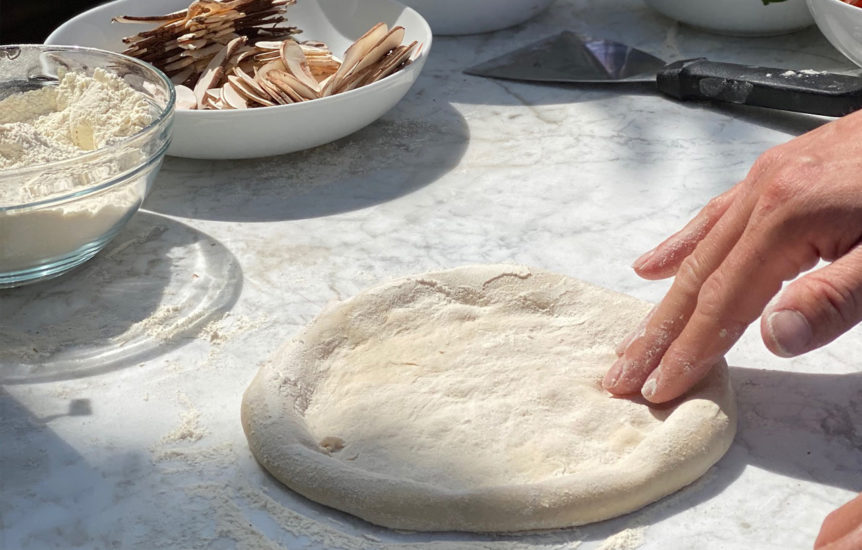How do I make the perfect pizza dough?! Well there’s a question. There are pizza dough recipes galore out there, and one, from Associazione Verace Pizza Napoletana, that dictates exactly how to make the perfect pizza dough.
For a 14-page breakdown , visit the association’s website to get the lowdown on the absorption, stability and value index of the ‘perfect’ pizza flour. It also tells you the recommended water temperature for dough making and the optimum proving time based on the yeast used.
Yes, it really can get that detailed.
What is the secret to making a professional pizza dough?
In summary, the water temperature and flour type are your key when it comes to pushing the pizza dough boat out. Choose Tipo ’00’ or ‘0’, both incredibly fine, refined white flour with a power quality to it. No seeds, no bran, no germ. Just flour.
Your water should be lukewarm, between 16 and 22°C with a pH of 6 to 7.
Base your dough making on the amount of water you’re using, and the Verace Pizza Napoletana guys say never add fat or sugar.
- Water: 1 litre (1000 ml)
- Salt: 40-60 grams
- Yeast (based on temperature and humidity):
- Fresh beer yeast 0.1-3 grams
- Mother Yeast 5 to 20% of flour used
- Dry yeast 1/3 of fresh yeast used (1 gram of dry for 3 grams of fresh
- Flour: 1,600/1,800 grams (depending on the degree of absorption)
Source: https://www.pizzanapoletana.org/en/ricetta_pizza_napoletana
Lukewarm water will wake up the yeast – water that is too hot will kill it, making your dough unusable. When the water and yeast meet it should bubble. If it doesn’t froth, you may as well start again.
Mix the dry ingredients into the water using a mixer with dough hook until it’s “sticky, soft and elastic to the touch”. Turn it out and cover it with a damp cloth then leave it rest for between an hour and 90 minutes. After resting, portion out dough balls of 200 to 280 grams.
Leave the dough balls to prove either in a warm place for another hour to 90 minutes, or cold prove it for up to three days in a fridge for a more complex flavour and texture. Leaving pizza dough to prove any longer and the yeast’s sugar starts to convert to alcohol, which messes with the flavour and makes the crust too dense.
When should I make my pizza dough?
You need to plan ahead. There are high-speed pizza dough recipes out there, but they’re only really perfect if quick pizza is your perfection.
For pro pizza dough, you should be prepared to wait a couple of days from initially bringing together the water, flour, yeast and salt.
Do I add sugar or oil?
The Neapolitan puritans forbid it, but there’s many a pizza chef that swears by adding sugar and oil. And it’s not just a flavour thing.
Adding sugar gives the yeast a little boost, helping it create more bubbles; it also gives the crust a darker crust when the pizza comes out of the oven. And oil puffs up the dough as well as giving the cooked pizza a biteable tenderness.
What are your perfect pizza dough secrets? Let us know in Instagram and Twitter.

